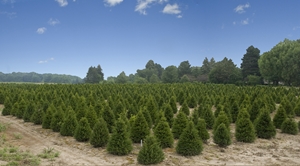
According to Time Magazine, longer, colder winters could be one of the main causes of intense allergy seasons.
Persistent cold temperatures coupled with the extremely long winter have delayed the usual pollen release that occurs in March.
Different types of trees release pollen at varying times throughout the spring. The longer winter much of the U.S. experienced delayed the release of pollen for many of these trees. Because of this, trees have begun to release pollen at the same time, increasing the overall amount of pollen on your car windshield and collecting in your home windowsills.
According to one expert, this could even create large masses of visible pollen clouds.
New England could be the most affected area with its highest recorded snowfall and slow-to-warm-up temperatures.
Prepare yourself for allergy season with the following three tips.
- Change clothes as soon as you can. Your clothes go wherever you go, and can attract pollen and other small allergen particles. Never wear the same clothes you wore outside to bed, as this can transfer allergens there as well.
- Take your allergy medication before symptoms start. If you wait until your eyes begin to water and your nose starts to run, it may take longer for your medication to help.
- Visit an allergist to learn exactly what you're allergic to and how you can protect yourself. In addition, explore treatment options, since there isn't just one way to prevent every day allergy reactions.
Although this allergy season may seem bleak so far, there is hope. According to the Orlando Sentinel, tree pollen counts should start to decrease by the end of May.
Don't let seasonal allergies take over your life. Check out our website for allergy control products, allergy prevention tips and other helpful information.









